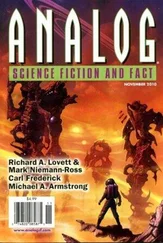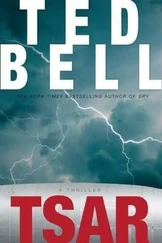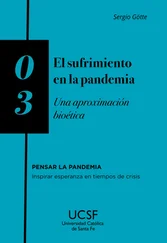Ted Bell - Phantom
Здесь есть возможность читать онлайн «Ted Bell - Phantom» весь текст электронной книги совершенно бесплатно (целиком полную версию без сокращений). В некоторых случаях можно слушать аудио, скачать через торрент в формате fb2 и присутствует краткое содержание. Жанр: Триллер, на английском языке. Описание произведения, (предисловие) а так же отзывы посетителей доступны на портале библиотеки ЛибКат.
- Название:Phantom
- Автор:
- Жанр:
- Год:неизвестен
- ISBN:нет данных
- Рейтинг книги:3 / 5. Голосов: 1
-
Избранное:Добавить в избранное
- Отзывы:
-
Ваша оценка:
- 60
- 1
- 2
- 3
- 4
- 5
Phantom: краткое содержание, описание и аннотация
Предлагаем к чтению аннотацию, описание, краткое содержание или предисловие (зависит от того, что написал сам автор книги «Phantom»). Если вы не нашли необходимую информацию о книге — напишите в комментариях, мы постараемся отыскать её.
Phantom — читать онлайн бесплатно полную книгу (весь текст) целиком
Ниже представлен текст книги, разбитый по страницам. Система сохранения места последней прочитанной страницы, позволяет с удобством читать онлайн бесплатно книгу «Phantom», без необходимости каждый раз заново искать на чём Вы остановились. Поставьте закладку, и сможете в любой момент перейти на страницу, на которой закончили чтение.
Интервал:
Закладка:
Born in London, he’d attended the prestigious St. Paul’s school before becoming an undergraduate at Magdalene. He’d stayed on for his master’s as well as his Ph. D. in particle physics. Having earned his doctorate, he’d risen to the lofty position of Life Fellow, which entitled him to free rooms at the Memorial Court, free meals at High Table in the Hall, and, most important, free rein to walk on the grass unaccompanied.
He got to his feet as the two men were shown into his office. His eyes, Congreve noticed, behind thick glasses, appeared outsized, like those of an appealing character in one of those Pixar animated films Ambrose and his fiancee enjoyed so much. His office looked a little shabby and was filled with old phone books, textbooks, overflowing cardboard boxes, and countless piles of yellowing paper leaning Pisa-like toward the floor.
Taped to the walls were a map of the solar system, a periodic table, a poster of the signing of the Declaration of Independence, a taxonomy of animals, color photos of Obama and John McCain with handwritten labels reading THIS ONE and THAT ONE.
“I’m very much in a rush, you see,” he said, pushing his glasses up on his nose. “In a rush about so many things, rushing about, here, there, everywhere. Which isn’t to say that I don’t have time to talk to you. My goodness, no; I mean, yes, I do. It’s just that-that’s why my office is in such disarray, because I’m so rushed. If you take my point.”
“We very much appreciate your making time for-” Hawke began, before being startled by a large explosion erupting from Congreve. The sun-dappled dust clouds in the room had caused him to sneeze uproariously.
“Sorry about the dust,” Partridge said. “I don’t like the janitors to come sweep for fear they’ll disturb something. Do you care for a stirrup cup at all? Laphroaig. Bit early in the day but… but …” Congreve sneezed again, something akin to a typhoon.
“God bless,” Hawke said to Ambrose, who was mopping up with his handkerchief. Then, to the professor, “As I was saying, we’re most grateful for your time.”
“Yes, yes, of course, of course. Chief Inspector, Lord Hawke, so good of you to come all this way. I do hope you won’t find it’s been in vain.”
Congreve and Hawke glanced at each other sidewise, neither of them liking the phrase “in vain.”
“So do I, so do I,” Hawke said, shaking the man’s hand. He found it dry and strong, always a good sign.
“Do sit down, won’t you?” Partridge said. “Tea will arrive momentarily unless I’m very much mistaken. Do either of you take sugar?”
His guests declined.
“No?” he said, gazing at them for confirmation.
“Thanks, no,” Congreve said.
Alex and Ambrose took the offered chairs at the professor’s ancient desk. The view of the willows along the river out the tall windows was lovely. Sunshine streamed in, making the dark wood paneled room a very pleasant place to be on a Saturday morning. Congreve had often ruminated about what life might have been had he chosen to remain on at Cambridge, perhaps as a don or Fellow. As charming as the setting was, he couldn’t see himself sitting in the chair across the desk. He’d forever be missing out on all the action. He’d been a copper at heart all his life.
“Well, gentlemen, let me begin by saying how fascinating my colleagues and I here at Magdalene have found the task you set before us. We are odd ducks, you know. We toil away in our laboratories, lost in our tiny realms, oblivious to the outside world and its mysteries. So thank you for providing us with a distraction. And, quite frankly, an enormous challenge.”
“Professor Partridge,” Congreve said, “if I may clarify, what, precisely, is your role here at the college?”
“Of course. I am the university senior lecturer in Machine Learning and advance research fellow and director of studies in Quantum Computing here at the college. Ultimately, your-problem-was kicked along to me. I happened to know the late Dr. Cohen and his work quite well, so I was the logical choice. I did some of my postgraduate quantum computing work in the States, a good part of it at Stanford, as it happens.”
“You worked on the Perseus Project?”
“I did indeed. Only for a brief period, unfortunately. But long enough to have a good working knowledge of what they were after. It was still early days, you see.”
“The Singularity,” Congreve said.
“Precisely. The world’s first ultra-intelligent machine. My particular interests lay in computational modeling of human reasoning. Artificial intelligence, automated reasoning, diagrammatic reasoning, theorem proving, proof planning, cognitive science, machine learning, human-computer interaction, quantum mechanics, and so on. You get the general idea. Perhaps you’ve read my books?”
“Unfortunately not. What are the titles?” Congreve asked, pulling out his notepad and pencil.
“ The Fabric of Infinity was the first. Followed by The Fallacy of Reality. Published by Cambridge University Press. Available on Amazon where they languish in well-deserved obscurity. Never seen a nickel in royalties.”
“I would say we’ve come to the right door,” Congreve said, smiling. “Quite impressive. Although I must tell you, sir, that I’m afraid all I know about mathematics is that two plus two equals four.”
Partridge regarded Ambrose above his tented fingers, thought for a bit, and said, “Hmm. I’ve often wondered.”
Hawke laughed at the obvious joke, glanced at Congreve, and could see his friend was uncomfortable, not quite sure whether to laugh or not. But before he could say anything, Partridge looked at Hawke, unsmiling.
“No, I’m quite serious,” he said. “As far as the laws of mathematics refer to reality, they are not certain, and as far as they are certain, they do not refer to reality. If you take my point.”
“Precisely,” Congreve said with a bit of a smirk at his friend. “I was thinking along those very lines myself, Professor.”
“Like you, Chief Inspector, I am merely a detective. And a devotee of Conan Doyle’s Sherlock Holmes, as are you, I believe, according to Mr. Google.”
“Devotee is putting it mildly,” Congreve said.
“As you know, Sir Arthur Conan Doyle never liked detective stories that built their drama by deploying clues over time. Conan Doyle wanted to write stories in which all the ingredients for solving the crime were there from the beginning, and that the drama per se would be in the mental workings of his ideal ratiocinator. The story of quantum computing follows a Holmesian arc, since all the clues for developing a quantum computer have been there essentially since the discovery of quantum mechanics, waiting patiently for the right mind to properly decode them.”
“And that man was Waldo Cohen?”
“It was indeed.”
Hawke said, “Professor Partridge, we would very much appreciate hearing your thoughts on Dr. Cohen and his protege, Darius.”
“Of course. There are two distinct issues here: the Darius File, as we call it, and Dr. Cohen’s progress, or as much of it as we shall determine by delving further into what we might glean from his workstation. Where would you like to begin?”
“Cohen’s progress,” Hawke said, shifting in his chair. “We know that he was very secretive.”
Partridge laughed. “Oh, you have no idea. There is a level of encryption in his files the likes of which we’ve never seen. We were simply unable to break through here at Cambridge, I’m sorry to say. You’re aware of prime factorization, of course, for centuries the holy grail of mathematics. It’s the basis of much current cryptography. It’s easy to take two large prime numbers and multiply them. But it’s very difficult to take a large number that is the product of two primes and then deduce what the original prime factors are. Prime factorization is an example of a process that is very easy one way, and very difficult the other. Do you follow?”
Читать дальшеИнтервал:
Закладка:
Похожие книги на «Phantom»
Представляем Вашему вниманию похожие книги на «Phantom» списком для выбора. Мы отобрали схожую по названию и смыслу литературу в надежде предоставить читателям больше вариантов отыскать новые, интересные, ещё непрочитанные произведения.
Обсуждение, отзывы о книге «Phantom» и просто собственные мнения читателей. Оставьте ваши комментарии, напишите, что Вы думаете о произведении, его смысле или главных героях. Укажите что конкретно понравилось, а что нет, и почему Вы так считаете.












